FCC Amateur Radio License Class
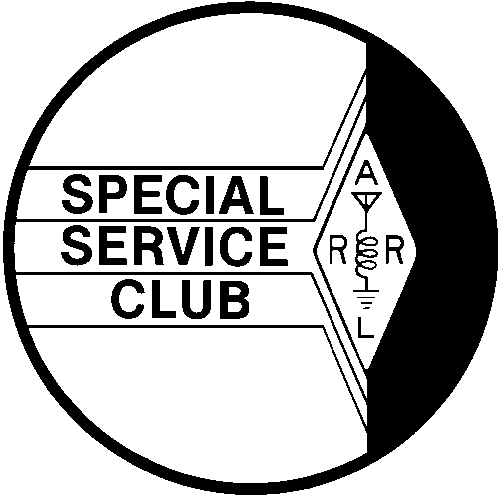 This site is for the Garland (Texas) Amateur Radio Club which is an American Radio Relay League (ARRL) Special Services Club in North Texas.
This site is for the Garland (Texas) Amateur Radio Club which is an American Radio Relay League (ARRL) Special Services Club in North Texas.
|
|
Who are Amateur Radio Operators?
The video is with previous news caster Walter Cronkite, KB2GSD. Walter has passed on but his video is very informative. This video shows one side of amateur radio operation - emergency services. At the end of the video you see Walter on his sail boat which is another use of amateur radio operation - general communications. You may notice that the staff who produced this video are all amateur radio operators because they have attached their amateur radio operator's call sign to their name. |
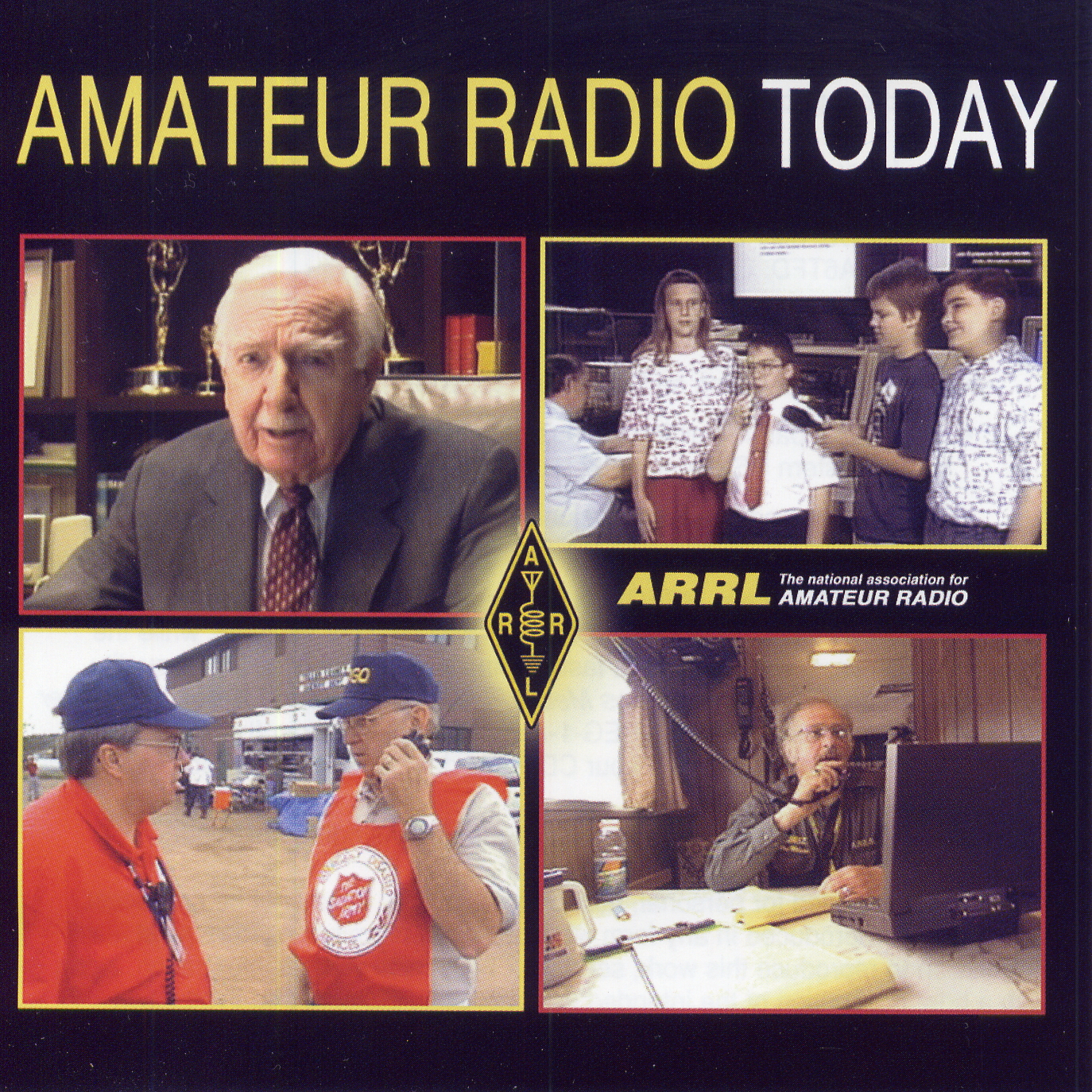 Amateur Radio Today
Amateur Radio Today
Copyright ARRL 2003 |
More training at these links. Click here to skip on down.
Obtaining an FCC Amateur Radio Service License
Let me begin by saying right off that the FCC Amateur Radio Service is not a give-me.
To earn the Technician License, as well as the General License and the Amateur Extra license one must study and pass an exam.
I am saying this because some have believed that all they needed to do was take the exam without any study.
These guys usually fail the exam.
There are those who have had a lifetime in electronics and radio and they usually pass the exams with minimal study.
With a little study everyone can pass the Technician exam.
I am not trying to scare you because many school children regularly pass the Technician exam.
What I am saying is you need to study to pass the exam.
Obtaining an FCC Amateur Radio Service license is a worthy goal and also a great accomplishment.
Being able to communicate, around the neighborhood or around the world, on the radio is a lot of fun.
Some people need a Technician License for emergency preparation and actual emergency communication.
Some people use the Amateur Radio Service for personal sporting or camping events.
Many students use the Amateur Radio Service to communicate with astronauts aboard the International Space Station (ISS).
Don't forget using radio for controlling model craft, talking through satellites, school science fairs, or just speaking to a friend.
There are many more reasons to use Amateur Radio Service.
There are many Youtube videos available about the Amateur Radio Service.
With Youtube you can see other HAMs share their knowledge and vast experiences.
You may listen to the many POD Cast available.
There are groups like the young ladies radio group, youth groups, distance listening groups (DX), and many others.
All around the country are trade shows called Ham Fest where you can visit with other HAMs, attend shows, and buy and sell HAM equipment.
With a radio you can communicate with Morse Code (not a requirement), your voice, or via your computer.
The American Radio Relay League (ARRL) offers many magazines, both online and in print, POD cast, letters and news, and technical resources.
(More information on groups and on the services provided by the ARRL are later in this document.)
Set aside a little time each day for some un-obstructed study.
Depending on your reading skills it could take a month or two to read the manual from cover to cover.
While reading the manual be sure to watch the accompanying David Casler Youtube videos.
All the answers to the FCC exam are in the back of the manual.
Don't get discouraged.
Soon things will begin to fall in-place as you pickup the new lingo.
You will be surprised at the new things you learn.
Remember that many school children who study do pass the Technician exam.
Some even eventually pass all three FCC exams.
Most new HAMs are self taught.
We are here to help.
There are many other sources for assistance.
If you don't study with us please study with someone and obtain an FCC Amateur Radio Service license.
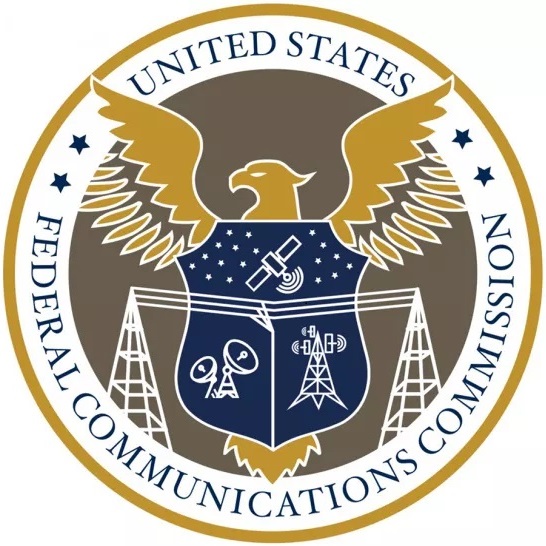 Federal Communications Commission
Federal Communications Commission
The Federal Communications Commission (FCC) defines amateur service as "A radiocommunication service for the purpose of self-training, intercommunication and technical investigations carried out by amateurs, that is, duly authorized persons interested in radio technique solely with a personal aim and without pecuniary interest."
Here is a little more information from the United States Code of Federal Regulations (CFR), Title 47 - Telecommunication, PART 97 - AMATEUR RADIO SERVICE, § 97.1 Basis and purpose, that define what amateur radio is all about.
"The rules and regulations in this part are designed to provide an amateur radio service having a fundamental purpose as expressed in the following principles:
(a) Recognition and enhancement of the value of the amateur service to the public as a voluntary noncommercial communication service, particularly with respect to providing emergency communications.
(b) Continuation and extension of the amateur's proven ability to contribute to the advancement of the radio art.
(c) Encouragement and improvement of the amateur service through rules which provide for advancing skills in both the communication and technical phases of the art.
(d) Expansion of the existing reservoir within the amateur radio service of trained operators, technicians, and electronics experts.
(e) Continuation and extension of the amateur's unique ability to enhance international goodwill."
The FCC licenses for amateur radio currently up for explanation are the Technician, General, and Amateur Extra classes. They are studied and examined in that order. Morse Code is no longer required. You do not have to progress all the way to the top. You may stop when you have reached the level that provides the access you desire. There are many reasons to obtain your FCC amateur radio license because there are many things you may do once you obtain your FCC amateur radio license. The training manuals and/or online training sessions will attempt to touch on many of these aspects.
Once you get your license you can explore these avenues and build on your skills. Some examples of signals you may send and receive are Phone (voice), CW (morse code), JT8 (digital), and image (television). Some example of transmissions avenues you may use are direct, ionospheric bounce, meteor trail bounce, satellite, international space station, and moon bounce. Amateur frequencies in many bands are available. You are allowed to transmit in these bands depending on you license class. These bands include Low Frequency (LF), Medium Frequency (MF), High Frequency (HF), Very High Frequency (VHF), Ultra High Frequency (UHF), Super High Frequency (SHF), Extremely High Frequency (EHF), and even higher into light communications.
You may purchase you amateur equipment ready-to-use right off the store shelf. As an amateur radio operator you may build your own equipment from scratch. You may modify other radio equipment, like military or commercial, to operate on the amateur radio frequency bands. Or you can do any combination of these options just remember that each amateur station must be operated in accordance with good engineering and good amateur practice.
The FCC written exams are called elements 2, 3, and 4. First you must pass the 35 question element 2 written exam, by answering 26 questions correctly, to earn the technician class license. If successful with element 2, and you do not have too, but if you wish to continue you may then take the element 3 written exam. Then you must pass the 35 question element 3 written exam, by answering 26 questions correctly, to earn the general class license. If successful with element 2 and element 3, and you do not have too, but if you wish to continue you may take the element 4 written exam. Then you must pass the 50 question element 4 written exam by answering 37 questions correctly to earn the amateur extra class license. Many amateur radio operators do not take all three exams in one sitting but spread them out over time.
 National Conference of Volunteer Examiner Coordinators
National Conference of Volunteer Examiner Coordinators
For each of the three element exams there is a question pool maintained by the National Conference of Volunteer Examiner Coordinators. Each pool of questions last for four years before they are upgraded. Upgrades consist of things like removing "withdrawn" questions and updating old technology - vacuum tubes and mechanical typewriters - with current technology - semiconductors and computers.
The current technician class question pool runs July 2018 through June 2022.
The current general class question pool runs July 2019 through June 2023.
The current amateur extra class question pool runs July 2020 through June 2024.

|

|
Online there are many sites to learn Ham radio. These include Ham Test Online and Ham Study.
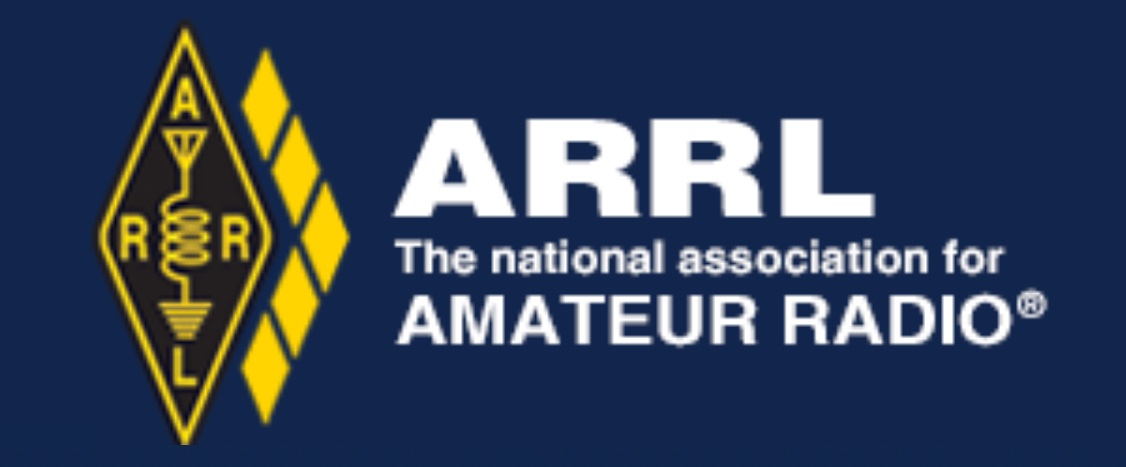 Find an Amateur Radio License Class
Find an Amateur Radio License Class
|
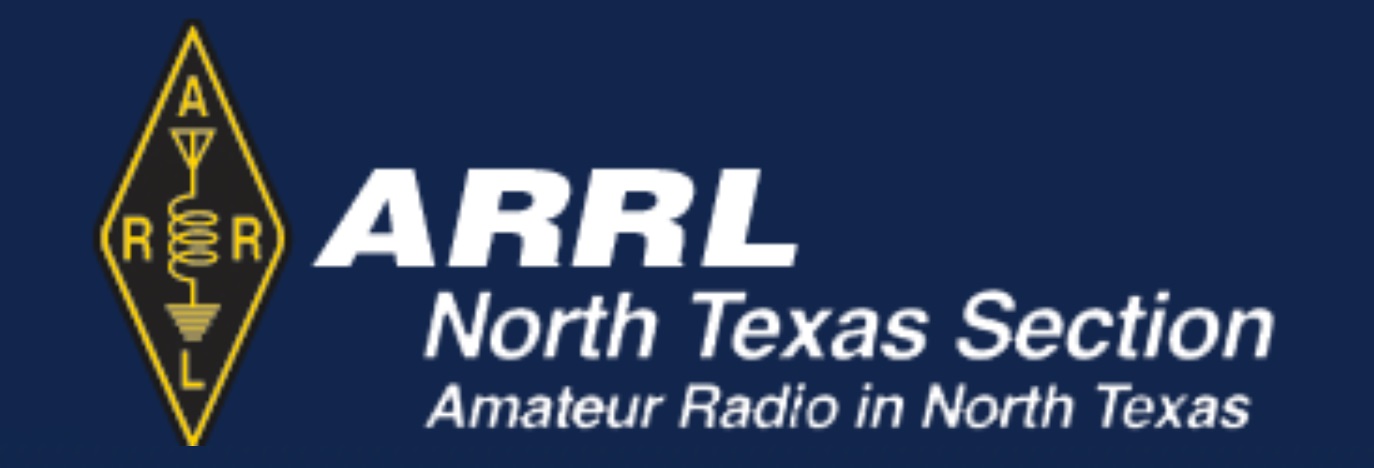 Find HAM Clubs In The ARRL North Texas Section
Find HAM Clubs In The ARRL North Texas Section
|
You can locate a class by going to the ARRL web site: find-an-amateur-radio-license-class. At this web site, just go to the drop down box labeled "ARRL Section:" and select North Texas. If you don't see any classes don't be discouraged. Go to the ARRL North Texas web site and email clubs and ask if they know of any classes.
You may also be able to train using the Gordon West Radio School.
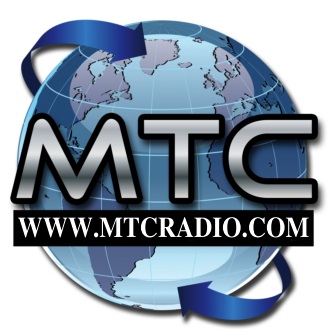 Main Trading Company in Paris Texas
Main Trading Company in Paris Texas
The Gordon West manuals are also available at the Main Trading Company in Paris Texas.
 David Casler
David Casler
(dcasler.com does not operate properly with
Microsoft Internet Explorer)
David Casler has a web site.
Under the paragraph "Amateur Radio" he has three key words - Technician - General - Extra.
Those links will eventually list his YouTube video links.
These are great videos to learn Ham radio.
Since Mr. Casler is constantly updating his YouTube information I found it better to link through his web site.
(Remember dcasler.com does not operate properly with Microsoft Internet Explorer.)
David Casler suggest that you watch this video from the Radio Society of Great Britain (RSGB). What is ham radio?
 Find an Amateur Radio License Exam Session
Find an Amateur Radio License Exam Session
|
 Find HAM Clubs In The ARRL North Texas Section
Find HAM Clubs In The ARRL North Texas Section
|
When you are ready to test you can locate an exam session by going to the ARRL web site: find an amateur radio license exam session. At this web site, just go to the drop down box labeled "ARRL Section:" and select "North Texas". If you don't see any classes don't be discouraged. Go to the ARRL North Texas web site and email clubs and ask if they know of any exams.
You can also go to Ham Study and look at their chart of upcoming test sessions.
If you are having browser troubles going to Ham Study you can try going to Exam Tools and on the right is a link to HamStudy.
There are lots of videos on YouTube from others just make sure the Technician classes are for the period July 1, 2018 through June 30, 2022.
There are lots of videos on YouTube from others just make sure the General classes are for the period July 1, 2019 through June 30, 2023.
There are lots of videos on YouTube from others just make sure the Amateur Extra classes are for the period July 1, 2020 through June 30, 2024.
|
For the FCC Technician Class License: |
|
For the FCC General Class License: |
|
For the FCC Amateur Extra Class License: |
The Garland Amateur Radio Club is an ARRL Special Services club.
Along with federal and international support the ARRL provides many services.
These services include visibility on social media, pod cast, books, magazines, awards, emergency services support and more.
I know there is much more training information so please email any question you may have to education@k5qhd.org.
John Abbott, KF5FWK, Garland Amateur Radio Club, Education Director
Kathleen Abbott, KF5UEI, Proof Reader
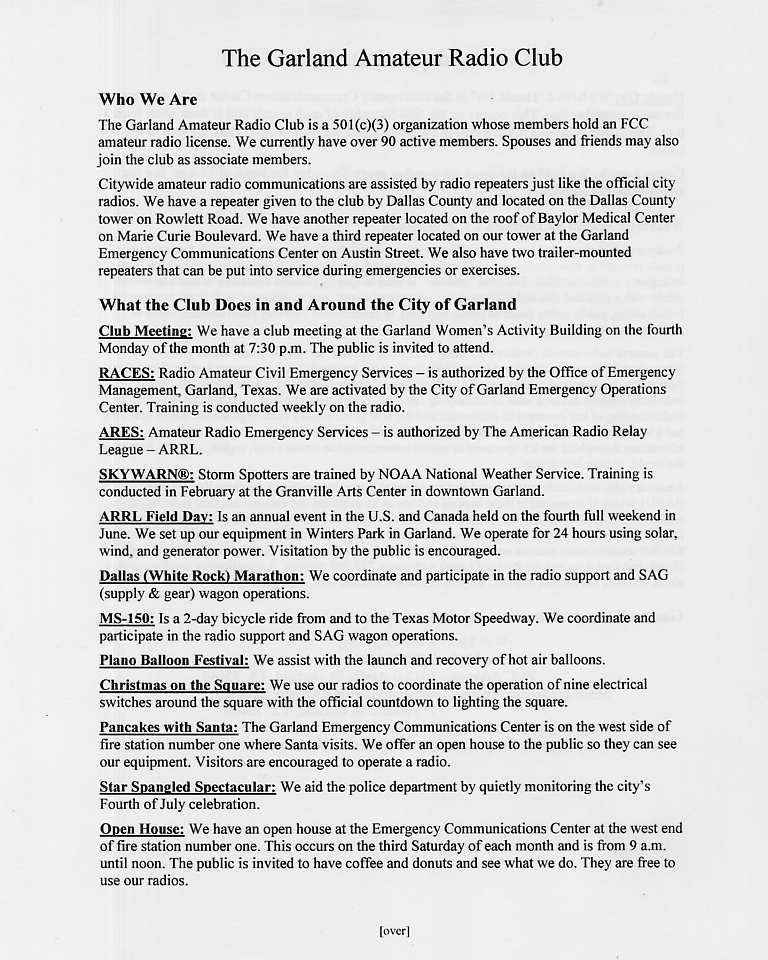 GARC: Who We Are - Facts
GARC: Who We Are - Facts
|
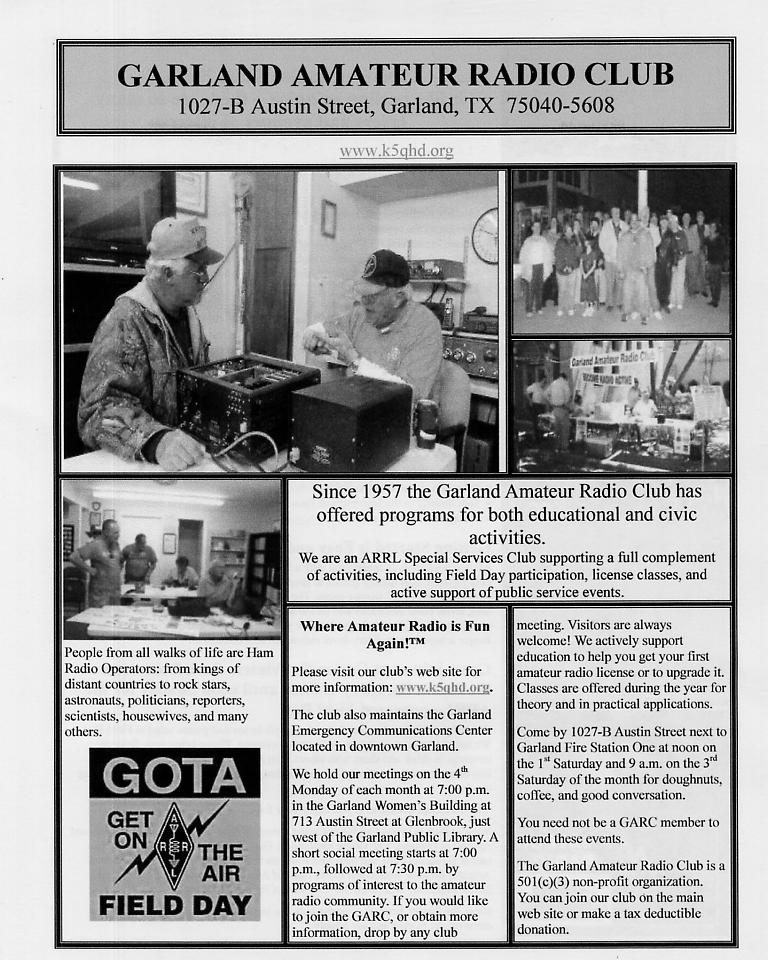 GARC: Who We Are - Photographic Handout
GARC: Who We Are - Photographic Handout
|
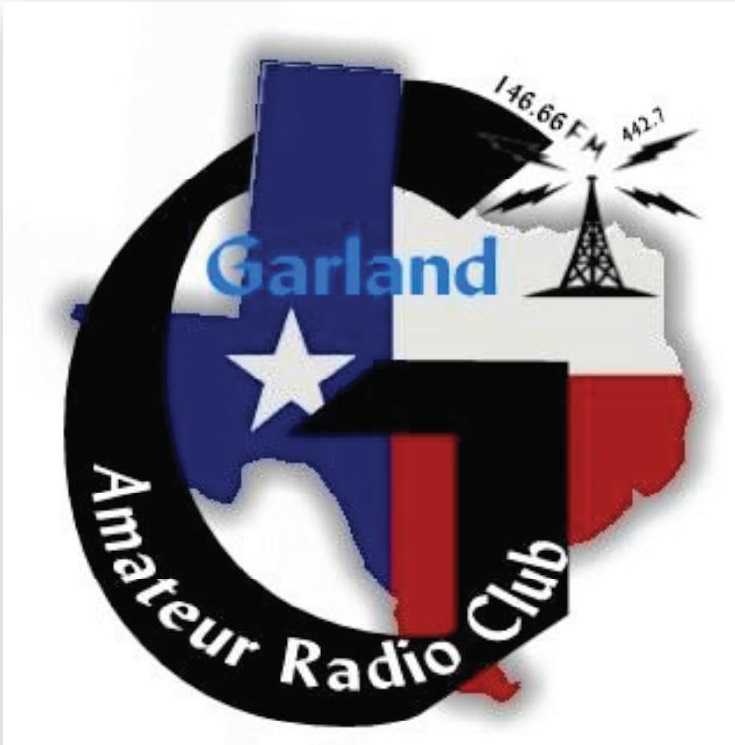 GARC: Logo
GARC: Logo
|
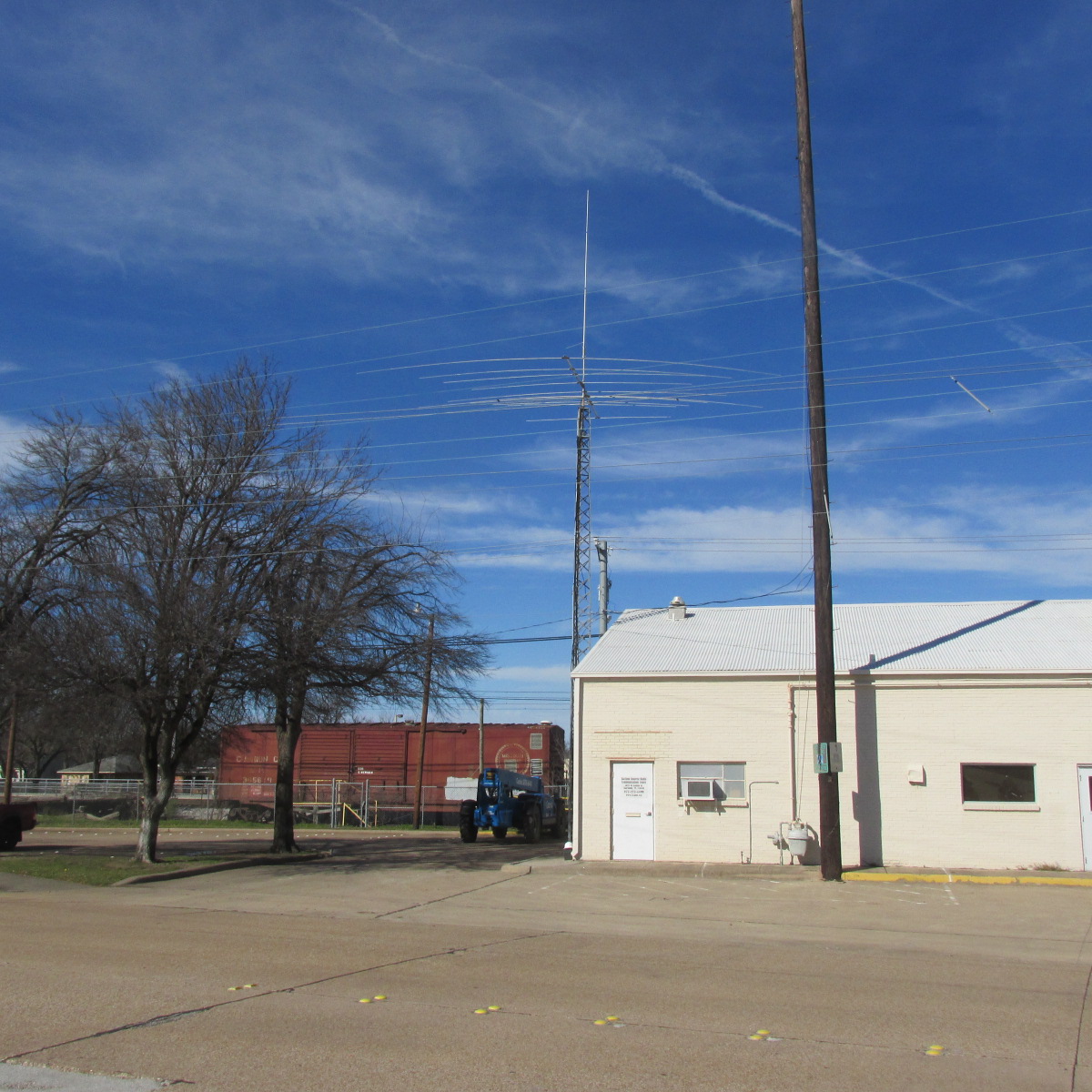 GARC: Outside
GARC: Outside
|
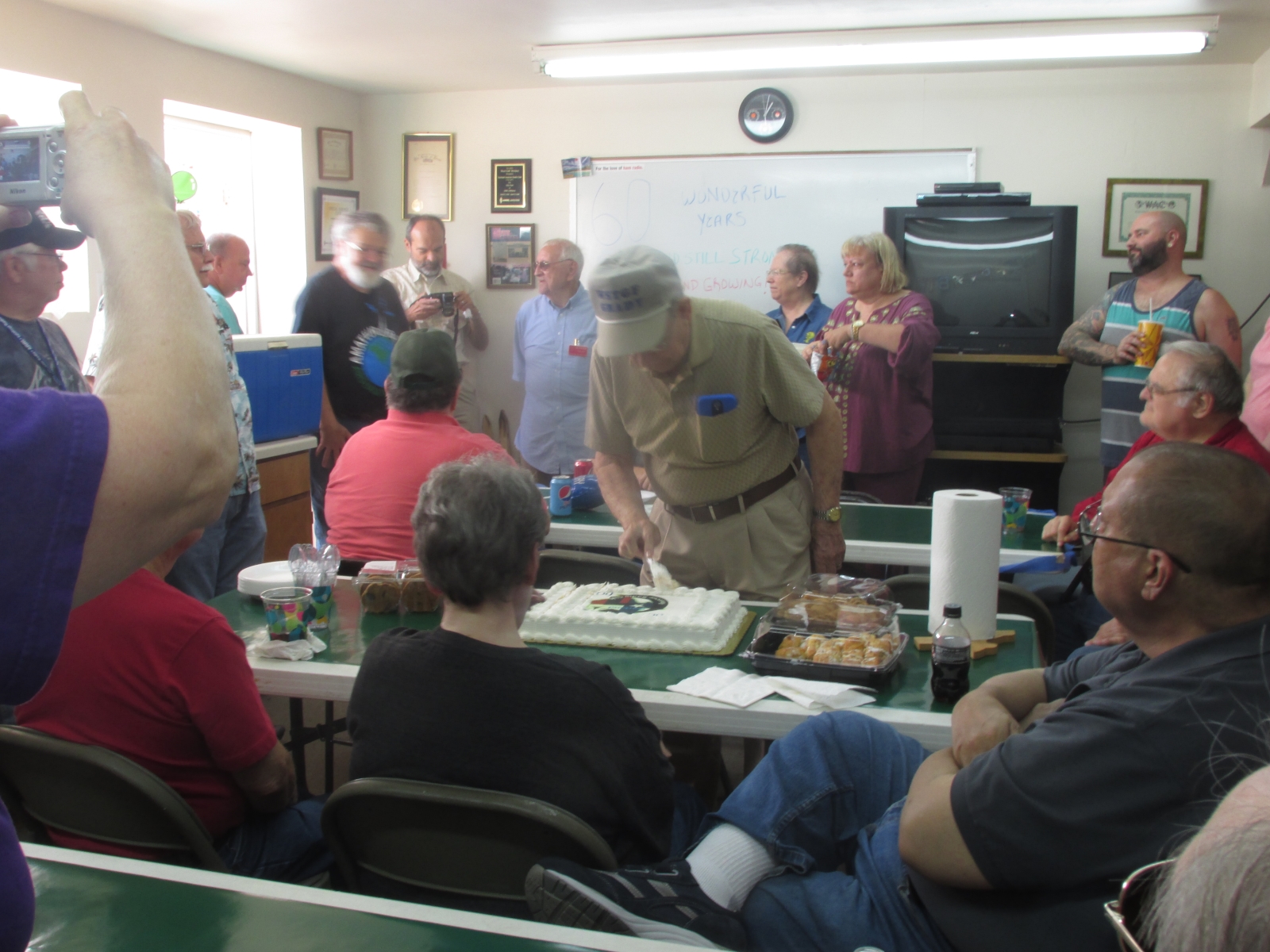 GARC: Inside
GARC: Inside
|
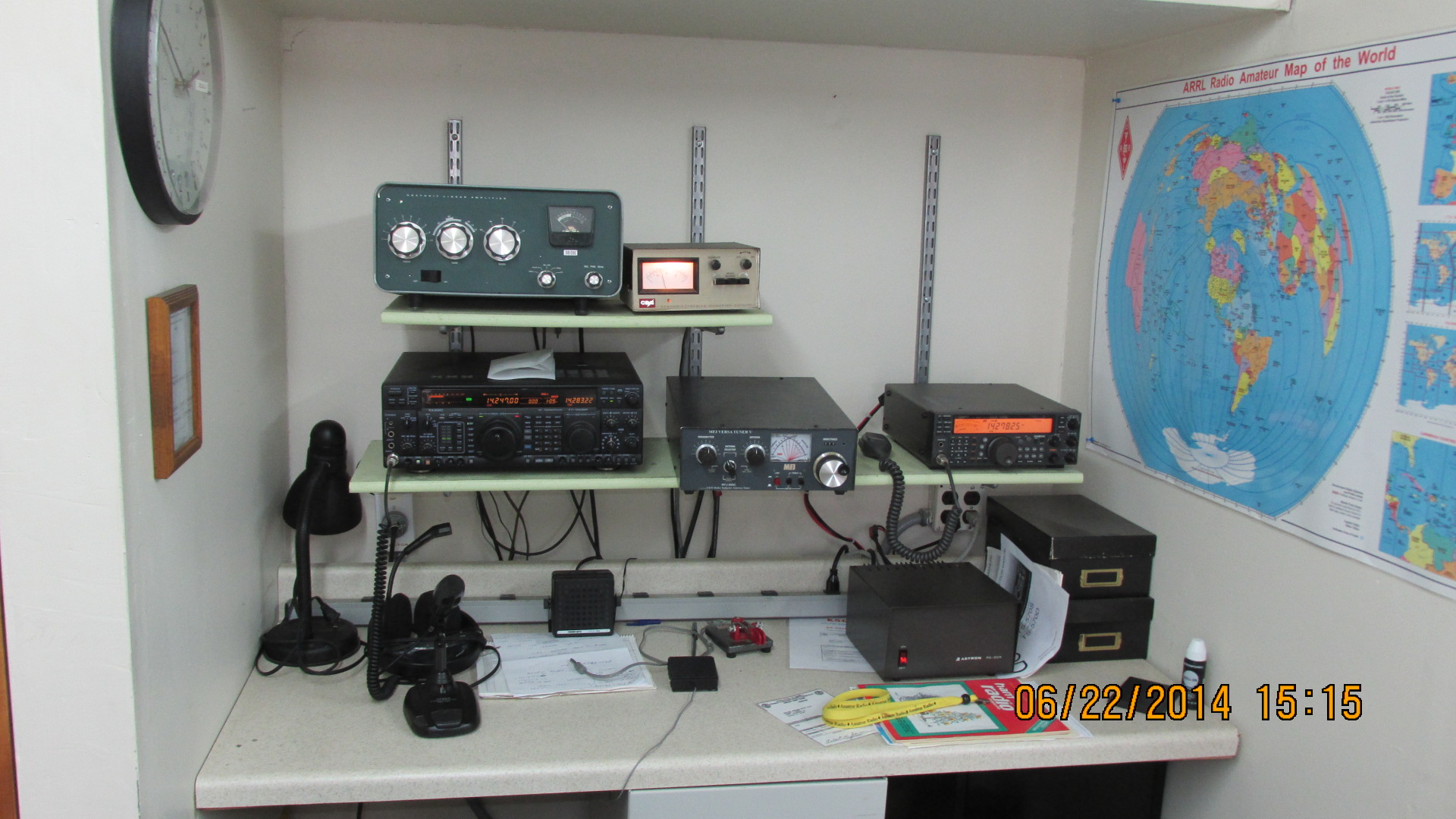 GARC: HF Radios
GARC: HF Radios
|
 Gordon West Radio School
Gordon West Radio School
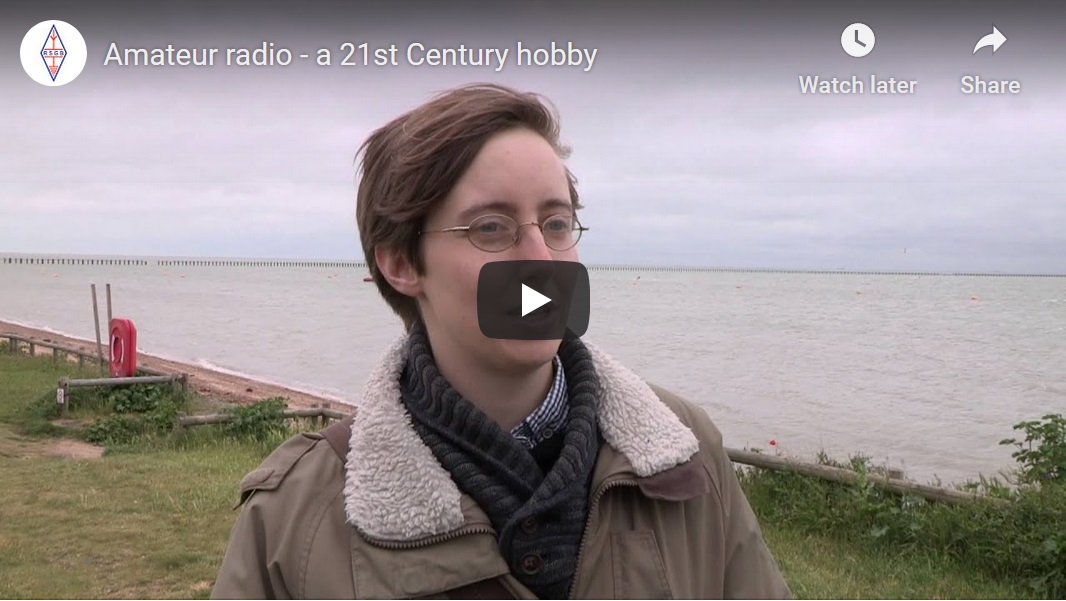 What is ham radio?
What is ham radio?
 Exam Tools
Exam Tools
 ARRL Social Services
ARRL Social Services
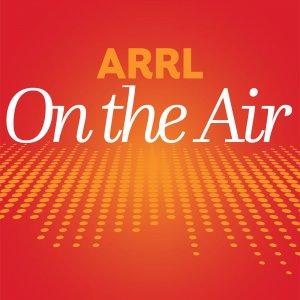 ARRL "On-the-Air" Podcast
ARRL "On-the-Air" Podcast
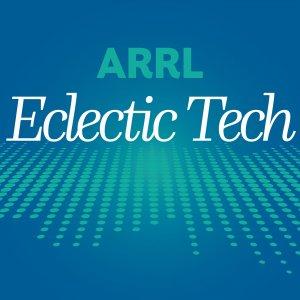 ARRL "Eclectic Tech" Podcast
ARRL "Eclectic Tech" Podcast
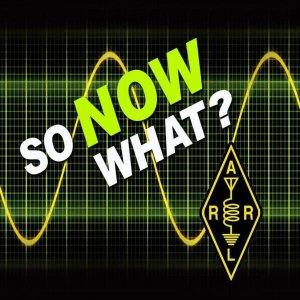 ARRL "So Now What" Podcast
ARRL "So Now What" Podcast
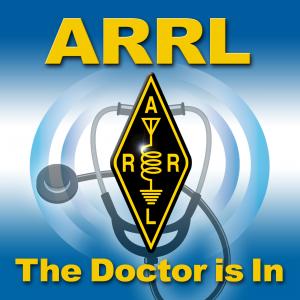 ARRL "The Doctor is in" Podcast
ARRL "The Doctor is in" Podcast
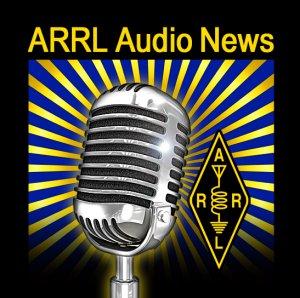 ARRL Audio News
ARRL Audio News
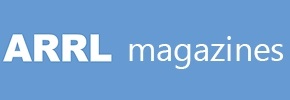 ARRL Magazines
ARRL Magazines
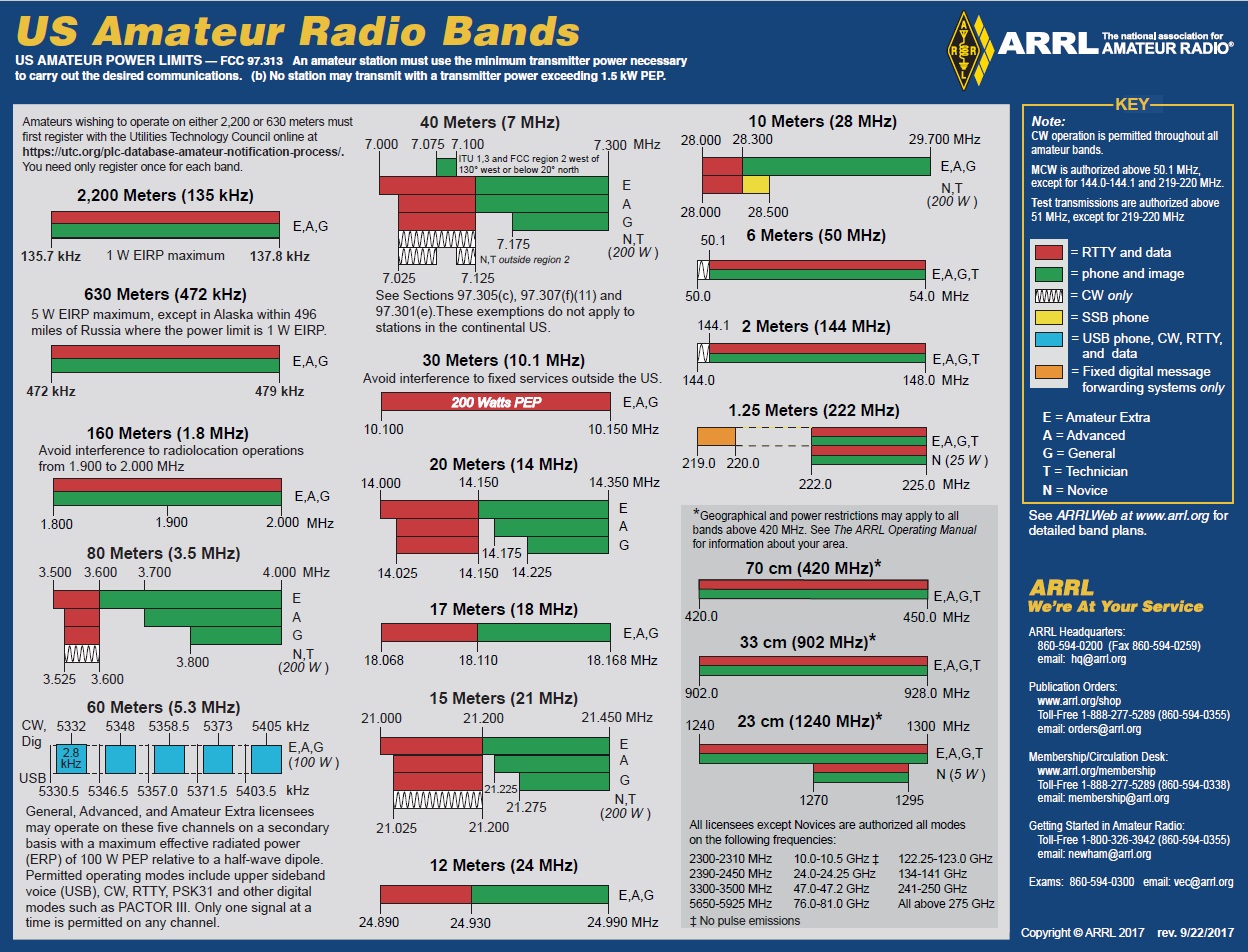 US Amateur Radio Band Charts
US Amateur Radio Band Charts